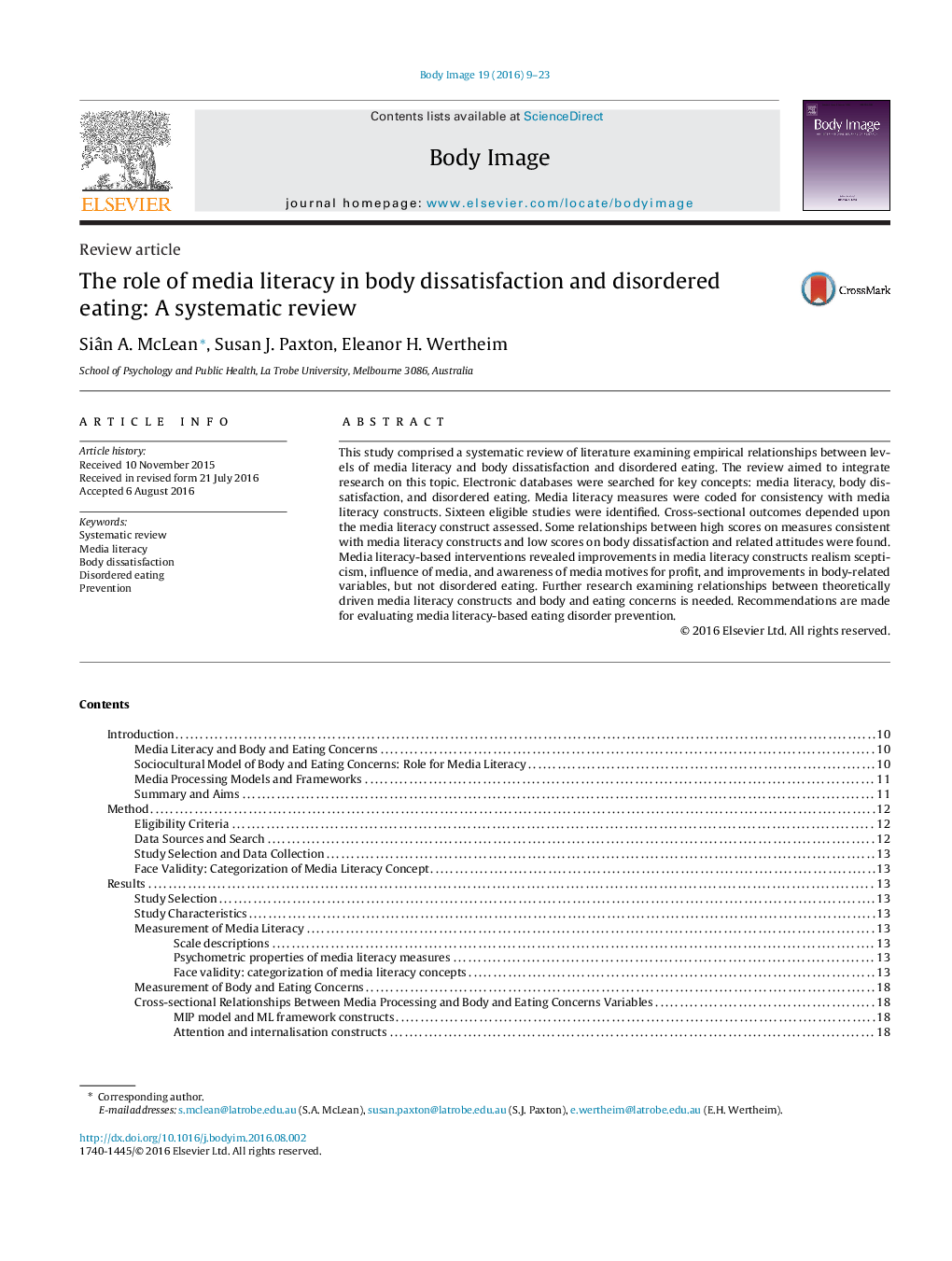| Article ID | Journal | Published Year | Pages | File Type |
|---|---|---|---|---|
| 902640 | Body Image | 2016 | 15 Pages |
•Recognition that media distort reality was associated with lower body concerns.•Attending to appearance content of media was associated with higher concerns.•Media literacy interventions improved media literacy and body-related variables.•Valid and reliable measures are needed to assess media literacy.•Evaluation of interventions must assess for mediation of outcomes by media literacy.
This study comprised a systematic review of literature examining empirical relationships between levels of media literacy and body dissatisfaction and disordered eating. The review aimed to integrate research on this topic. Electronic databases were searched for key concepts: media literacy, body dissatisfaction, and disordered eating. Media literacy measures were coded for consistency with media literacy constructs. Sixteen eligible studies were identified. Cross-sectional outcomes depended upon the media literacy construct assessed. Some relationships between high scores on measures consistent with media literacy constructs and low scores on body dissatisfaction and related attitudes were found. Media literacy-based interventions revealed improvements in media literacy constructs realism scepticism, influence of media, and awareness of media motives for profit, and improvements in body-related variables, but not disordered eating. Further research examining relationships between theoretically driven media literacy constructs and body and eating concerns is needed. Recommendations are made for evaluating media literacy-based eating disorder prevention.
